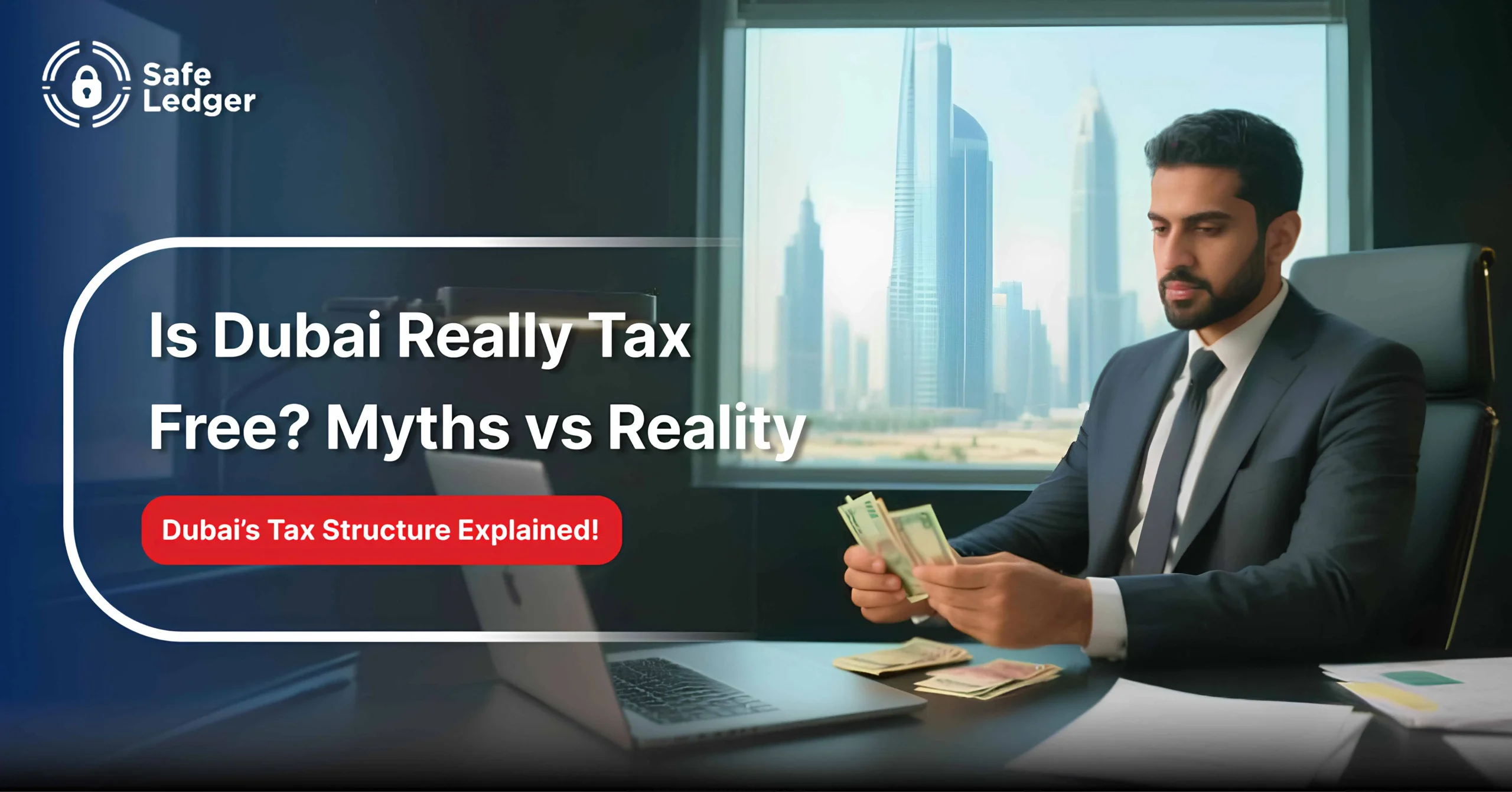The main reason Dubai got its tax-free reputation is because of the major taxes it does not have. The missing taxes, such as Personal Income Tax, Capital Gains Tax, etc., create huge benefits of Dubai’s tax system for expats & businesses. When you compare it with other countries, the savings are clear.
For example, countries in Europe and North America often have high personal income taxes, sometimes over 40%. In Dubai, this is not a concern.
Here are the key taxes you will not find in Dubai:
- No Personal Income Tax: This is the biggest advantage. You keep 100% of your salary, including monthly pay and bonuses. Freelance income is also tax-free, provided it’s not classified as business income. However, if your freelance earnings exceed certain thresholds or are considered business activity, they may be subject to corporate tax or other regulations.
- No Capital Gains Tax: If you make a profit from selling assets, you don’t pay tax on it. This includes profits from selling stocks, cryptocurrency, or real estate. However, there may be exceptions, especially for companies or certain types of activities.
- No Inheritance or Wealth Tax: You do not have to pay tax on inherited wealth or assets. The government does not tax your overall net worth.
- No Stamp Duty on Most Property Deals: While there are transfer fees, Dubai does not charge a separate “stamp duty” tax that is common in many other countries, like the UK.
These transfer fees are not the same as stamp duty, but they serve a similar purpose. The Dubai Land Department charges a 4% transfer fee on the property’s value when it’s transferred to the new owner. While it’s not called “stamp duty,” this fee is an important cost to consider when buying property in Dubai.
- No Tax on Rental Income: If you are a UAE tax resident and own property in Dubai, you do not pay tax on rental income from tenants. This also applies to businesses that earn rental income from property ownership, provided the activity complies with UAE regulations.
These rules make Dubai a very attractive place to build wealth. However, they do not tell the full story of living costs and business expenses.





